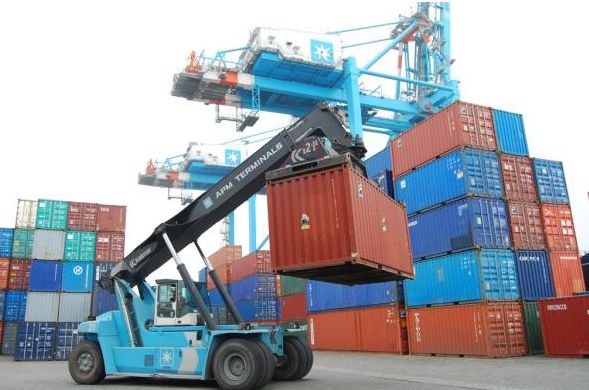São Paulo – The Arab Brazilian Chamber of Commerce (ABCC) is now offering the certificate of origin that renders exporters eligible to tariff breaks or tariff exemption in sales to countries Brazil is in free trade agreements with. Made available via a partnership with the Confederation of Trade and Business Associations in Brazil (CACB), an accredited certifier, the service has been available since early February, out of the ABCC headquarters in São Paulo as well as its branch in Itajaí, Santa Catarina (pictured above is the Port of Itajaí).

A certificate of origin is a document attesting to the origin of a certain item, i.e., it asserts that the item in question was made in a given country. Exporters are required to provide a certificate in order to be eligible for tariff breaks or exemption in sales to countries Brazil sustains free trade agreements with – Brazil is in such agreements as part of the Mercosur, including all the agreements that each individual Mercosur member country is in.
A certificate of origin can also be used solely for purposes of attesting the origin of the goods at hand, which some importers require, and not necessarily for tariff-related purposes, in which case it is known as a non-preferential or common certificate of origin. This type of document had been available previously from the ABCC regarding sales to Arab countries. Now, via the CACB, it will also provide common certificates for sales to other countries. Many markets require the attestation for health safety reasons, or to ensure they are not sourcing product from countries they have restrictions against.
The ABCC is interested in supplying the certificate to enterprises seeking obtain tariff breaks and exemption in sales to Egypt, an Arab country with a free trade agreement in place with the Mercosur. “The Arab Chamber envisioned an opportunity for its members and certifiers to issue the document faster out of São Paulo and Itajaí, since the CACB does not have offices in São Paulo,” said ABCC secretary-general Tamer Mansour. The ABCC already provides certification of export papers in sales to Arab countries, which it will continue to do.
Here’s more on the Egypt-Mercosur free trade agreement:
- Egypt-Brazil sales up 74% with Mercosur agreement
- Experts give positive review of Mercosur-Egypt agreement

CACB foreign trade executive Francisco Soler told ANBA that the Confederation had been looking for an organization in the state of São Paulo that could cater to the strong demand there by issuing certificates of origin on its behalf. “When we went seeking a partner organization, we looked for one that had an image of seriousness, commitment and responsibility, such as the Arab Chamber,” he claims. “We are certain that through this partnership with the CACB, we are contributing to the process of issuance of this crucial export document, and to Brazil,” ABCC president Rubens Hannun said.
Both the CACB and the ABCC believe that this new service will encourage Brazilian enterprises to tap into the free trade agreement in place with Egypt, thereby fomenting Brazilian-Arab trade. Soler intends to make this partnership about more than just document issuance, and to have it yield institutional gains to both parties. This should include hosting workshops on rules of origin, international agreements and other subjects, including regarding Egypt, to enlighten Brazilians about the advantages of shipping product to that country.
The Egypt-Mercosur free trade agreement went into force in September 2017, covering items available from both ends of the deal. More than 2,000 items are import tariff-exempt by now. Last year saw Brazil export USD 1.7 billion in goods to Egypt, the majority being food items. Egypt shipped USD 212 million to Brazil, mostly fertilizer.
Operation
Soler argues that the purpose of the of the partnership with the ABCC is to provide excellence in certification of origin issuance. Poorly done certificates often damage the image of enterprises, certifiers, and of Brazil itself. “Our role as a proxy to the federal government is to perform this service exactly as called for by international rules,” the CACB executive told ANBA.
Under the arrangement reached with the ABCC, the CACB will remain the certifier, and the former will represent it by rendering the service at its units. The certifiers are accredited by the federal government and the Latin American Integration Association (Aladi). Some 50 organizations are currently accredited in Brazil. Soler argues that the purpose of the partnership with the ABCC is to show excellence in certification of origin.
In case a certificate contains incorrect information, the importing country’s government may launch an inquiry, and in case breach of rules of origin is proven, the buyer of the goods will pay the full import tariff plus a fine.
For additional information on the service newly available from the ABCC:
Tel.: +55 (11) 3145 3200
Email: certificacao@ccab.org.br
Translated by Gabriel Pomerancblum




